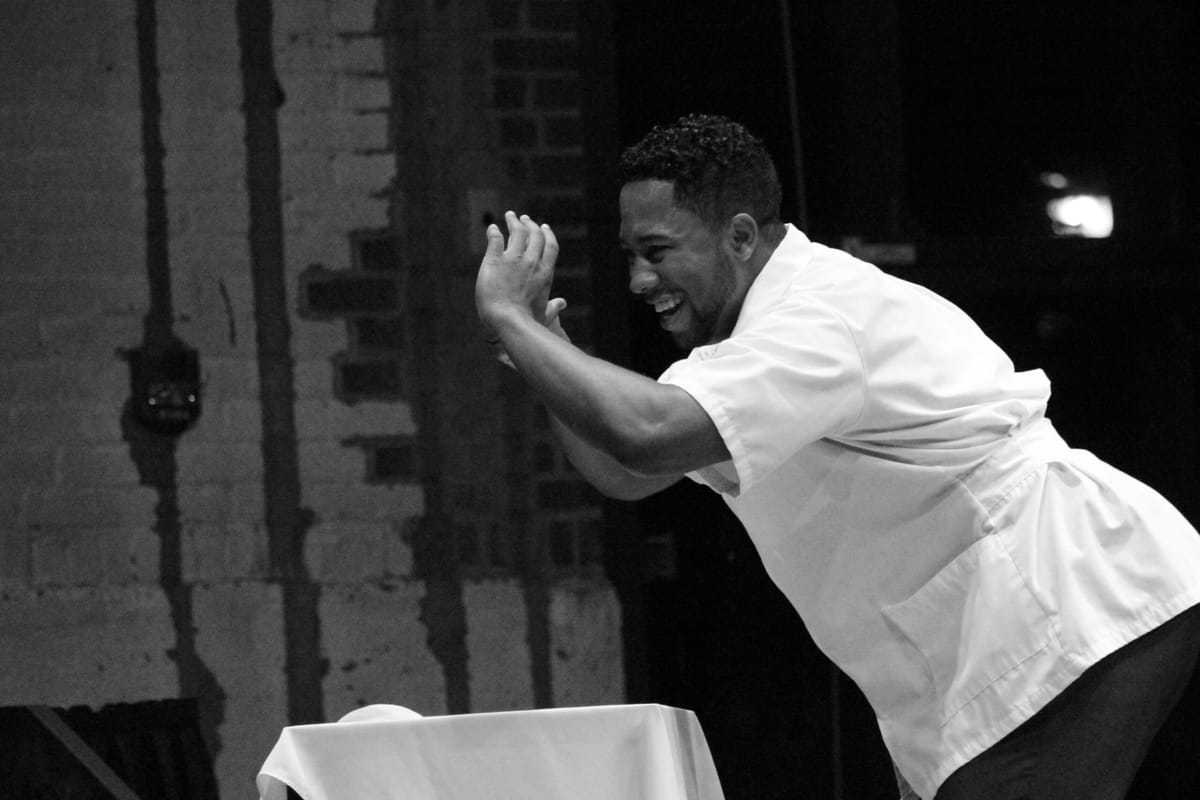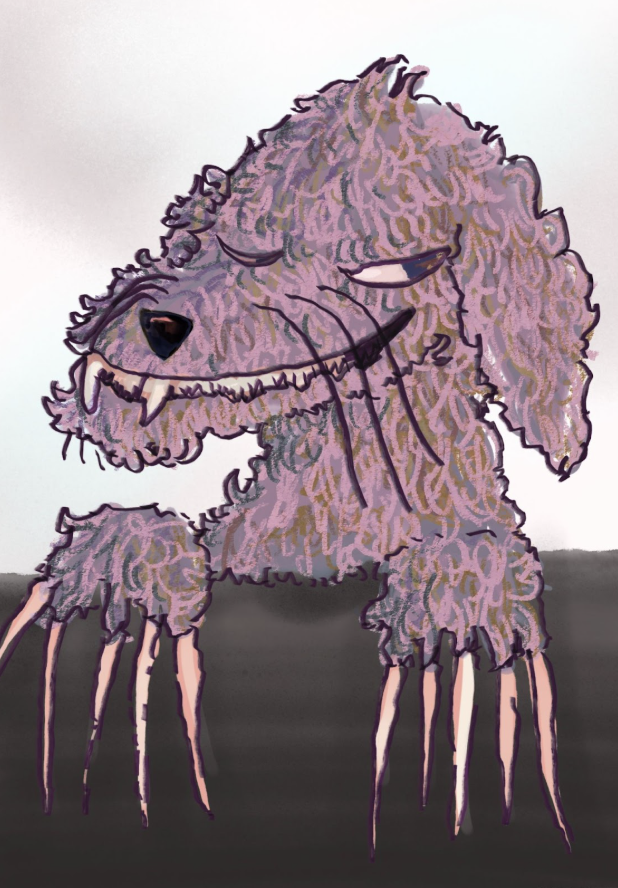Bryce Monroe ’15 Revamps Senior Thesis “The Lower Frequencies”

Bryce Monroe ’15 performed his play, “The Lower Frequencies,” last weekend at the Powerhouse. The play, which was inspired by Ralph Ellison’s “Invisible Man,” was originally Monroe’s senior thesis. Monroe hopes “The Lower Frequencies” will grow into a touring performance for colleges all around the country. The piece is a one-man show that analyzes what it means to be black in America. Monroe aims for his work to be more than a performance; he wants it to be a learning experience and an opportunity for people to face the harsh reality of modern day racism. After seeing the emotional performance last Saturday night, I was able to interview Monroe and ask him about the process of writing the hard-hitting narrative of “The Lower Frequencies.”
Q: I read that you were inspired by the recent police brutality cases to write about racial injustice. Can you describe the moment that you decided to write about this difficult topic?
A: My desire to write “The Lower Frequencies” was born out of my need to cope with my frustration, anger and sense of hopelessness that I and so many others in America, especially in the black community, experienced in the wake of the not guilty verdict for George Zimmerman in the murder of Trayvon Martin and with the failure to indict Officer Wilson in the murder of Michael Brown. Violence against black bodies and specifically police brutality, which have plagued the black community for hundreds of years, was finally beginning to surface in the media. I felt that as an artist who is also a black man, I not only had the opportunity, but also the responsibility to bring a particularly neglected American experience to light.
Q: What are some of the benefits and challenges to performing as a one-man cast? Did you ever consider having other actors on stage with you?
A: Early in my creative process, I considered writing a play with multiple actors playing different characters. However, much like the novel “Invisible Man” by Ralph Ellison, I felt that experiencing a story from the perspective of one narrator was the most effective way to connect with an audience through inner monologue. I also wanted to highlight the fragility and fluidity of identity by having one actor/performer (myself) portray each character of the play. In writing “The Lower Frequencies” I was able to abstract anecdotes and experiences from my personal life to create a story that dealt with many of the issues that “Invisible Man” raises. I wanted to make a story that revealed just how ever-present the struggles discussed in that novel remained in our society today.
Q: What were some of the biggest challenges of writing and creating this performance piece?
A: One of the most important things I wanted to change about “The Lower Frequencies” in its revival in the Powerhouse was that I did not want it to be a “show.” I did not want the audience to applaud or give a standing ovation because they just saw another great piece of theater and then leave the venue not having given the issues revealed in the performance a second thought. I wanted to share an experience with the audience an experience. It was not essential that I be praised or applauded for my art, but that the audience be truly impacted and moved to change the way they think about and interact with others in the world around them. I wanted “The Lower Frequencies” to be a catalyst for change! We utilized the three nights of shows last weekend to experiment with creating and prolonging discomfort, shock, uncertainty and suspense in the audience in order to find the right balance. I think we will continue to experiment with these emotions and responses from the audience.
Q: You really invested your mind, body and soul into this performance. Does performing take a physical and/or emotional toll on you each time you perform?
A: It truly takes everything I have every time I perform this piece. And I can only imagine what it was like. But it is almost inconsequential in comparison to the evil brutality of slavery and Jim Crow that my ancestors, great grandparents and grandparents had to physically endure.
Q: What do you hope people take away from your performance?
A: Art, and theater specifically, provided a platform from which one can present an upfront experience to an audience … and they can no longer ignore it. It’s tangible, it’s right in front of the audience for their very eyes to behold. It becomes real. I want to make a particular black experience real for an audience who by either privilege and/or choice have neglected the harsh realities that the black community faces every day. Their ignorance contributes to the perpetuation of systematic oppression; it is not simply a black problem but an American problem. We all have a responsibility to recognize the plight of people of color in America and to take action to eliminate institutional racism.
Q: What is next for “The Lower Frequencies”?
A: The message of “The Lower Frequencies” is so very relevant and important. I want to bring “The Lower Frequencies” to everyone I can, everywhere I can, first by launching our tour throughout academic institutions across the country and then transition to performing in residencies at different theaters and workshops. With the ultimate hope of finding a home for this production. “The Lower Frequencies” will be returning to the New England area in the spring semester of 2016, and I will have a residency with CCSU (Central Connecticut State University) where I will be performing a series of shows and conducting a workshop. We are currently finalizing plans to bring the production to Busboys and Poets theater in Washington DC.
This interview has been lightly edited.




Comments ()